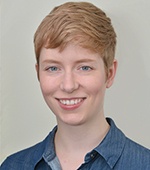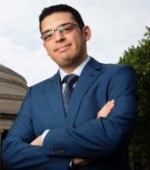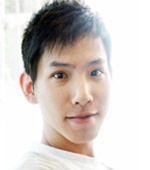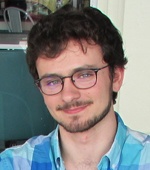News Three MIT students selected for inaugural J-WAFS fellowships for water solutions
February 7, 2018
J-WAFS is pleased to announce the selection of three MIT PhD students who have been awarded J-WAFSfellowships for water solutions for the 2017-2018 academic year. This is the inaugural year for both of our fellowships: the Rasikbhai L. Meswani Fellowship for Water Solutions and the J-WAFS Graduate Student Fellowship Program. The number and quality of student applicants reflected the breadth of student research in water and water supply being performed on campus, and the three selected students exemplify the creativity, excellence, and rigor for which MIT is known. Join us in congratulating the 2017-2018 J-WAFS fellows!
2017-2018 Rasikbhai L. Meswani Fellows for Water Solutions

Sarah Fletcher is a PhD candidate at the Institute for Data, Systems, and Society at MIT who is also affiliated with the Joint Program on the Science and Policy of Global Change. Sarah’s research focuses on sustainable water resource system planning, with an emphasis on developing flexible water supply planning tools that can help policymakers meet societal needs for water in the face of an uncertain future. Sarah works across disciplines – systems engineering, hydrology, and public policy – to analyze complex sociotechnical problems and communicate solutions to stakeholders.
The Meswani Fellowship will support Sarah’s work to develop a framework for: (1) modeling and managing the uncertainties that water supply planners face (including inconsistent rainfall and runoff levels, population growth, and climate change impacts) and the priorities of key stakeholders (e.g. reliability of service, cost, and environmental protection); and (2) evaluating the potential for the design of proactive, flexible engineering infrastructure and policy to minimize the risk from uncertainties. Sarah is applying this framework to water supply planning challenges in Australia, Kenya, and Saudi Arabia.
Sarah holds a masters degree in technology and policy from MIT and an undergraduate degree in physics and economics from the University of Pennsylvania.

Omar Labban is a PhD candidate in the Department of Mechanical Engineering at MIT. He is interested in the intersection of thermal sciences with membrane technology and desalination, and recently collaborated with a team of international researchers to develop new hollow fiber nanofiltration modules that can operate under very low pressures for desalination pretreatment and scaling mitigation. Omar also worked on employing membrane technology in dehumidification and cooling as part of an MIT study focused on next-generation HVAC technologies. He is motivated by the ways membrane technology can lower the energy use and environmental footprint of current desalination technologies, and pave the way for more efficiently and sustainably produced desalinated water.
The Meswani Fellowship will support Omar as he builds on this research. He is now conducting a close analysis of how and why nanofiltration can improve reverse osmosis technology for desalination. To pursue this goal, he will investigate: (1) separation efficacy and thermodynamics, (2) system design and economics, and (3) membrane fouling and scaling. Omar’s work seeks to create a foundation of knowledge that can support nanotechnology development in order to achieve more efficient and sustainable desalination.
Omar holds a masters degree in mechanical engineering from MIT, and an undergraduate degree in mechanical engineering from the American University in Dubai.
2017-2018 J-WAFS Graduate Student Fellow

Tzu-Chieh Tang (Zijay) is a PhD candidate in the Department of Biological Engineering at MIT, where he works as a research assistant in both the Synthetic Biology Group in the Research Laboratory of Electronics (RLE) and the Mediated Matter research group at the MIT Media Lab. Zijay is interested in biologically inspired engineering. His current research combines synthetic biology and materials design to build functional living materials that can sense, compute, memorize, and respond to environmental stimuli.
The J-WAFS Graduate Student Fellowship will support Zijay’s research into the development of genetically engineered microbes that could cheaply and effectively be used as water quality sensors. He has already worked with a team at MIT to build hydrogels that can contain these microbes to become a set of wearable living materials which fluoresce when they come in contact with certain chemicals. By closing the technology gap between selective electrodes that are affordable but lack the sensitivity to meet government testing requirements and the expensive processes that are currently used to detect contaminants in the water, he aims to have real world impact with his research: an accessible technology that could help raise public awareness about water quality and water security.
Zijay holds a masters degree in materials science and engineering from the Masdar Institute in Abu Dhabi, and an undergraduate degree in life science from National Taiwan University.
Honorable Mention

Mathieu Dahan was selected to receive Honorable Mention for the 2017 J-WAFSfellowships, in recognition of his outstanding academic accomplishment and research performance. Mathieu is a PhD candidate in the computational science and engineering program in the Department of Civil and Environmental Engineering. His work applies game theory to urban water resource sensing, allocation, risk assessment, and monitoring in order to make it easier to control water network use and maximize emergency response strategies.
The Rasikbhai L. Meswani Fellowship for Water Solutions and the J-WAFS Graduate Student Fellowship Program each provide provide one semester of funding to selected students who are pursuing research related to water and water supply at MIT. The Meswani Fellowship is supported by Elina and Nikhil Meswani and family. Through it we seek to support outstanding MIT students who are pursuing solutions to the pressing global water supply challenges of our time. The J-WAFS Graduate Student Fellowship is supported by the J-WAFS Research Affiliate program. Xylem, Inc., has provided funding that supports this year’s fellowship award.
For more information about the fellowship, please visit JWAFS.mit.edu or contact Andi Sutton, communications and program manager, at arsuttonatmitdotedu.